Oklahoma's largest tribes call for negotiation to settle differences on new tax agreements
- Oops!Something went wrong.Please try again later.
Leaders of the four largest tribes in Oklahoma called on state lawmakers Tuesday to resolve government-to-government conflicts through negotiation instead of litigation.
They were testifying at the start of a two-day legislative study into state-tribal compacts. House Speaker Charles McCall arranged the hearings to look into how the agreements have worked out for Oklahoma and the 38 federally recognized tribal nations based in the state. Elected officials from the Cherokee, Chickasaw, Choctaw and Muscogee nations all testified.
“We’re all Oklahomans,” said Bill Anoatubby, governor of the Chickasaw Nation. “When we have disputes, the best way to settle it is to come to terms.”
McCall said he wanted to build institutional knowledge surrounding the deals, which took off in the 1990s as a way for the state and tribal governments to work through competing interests outside court.
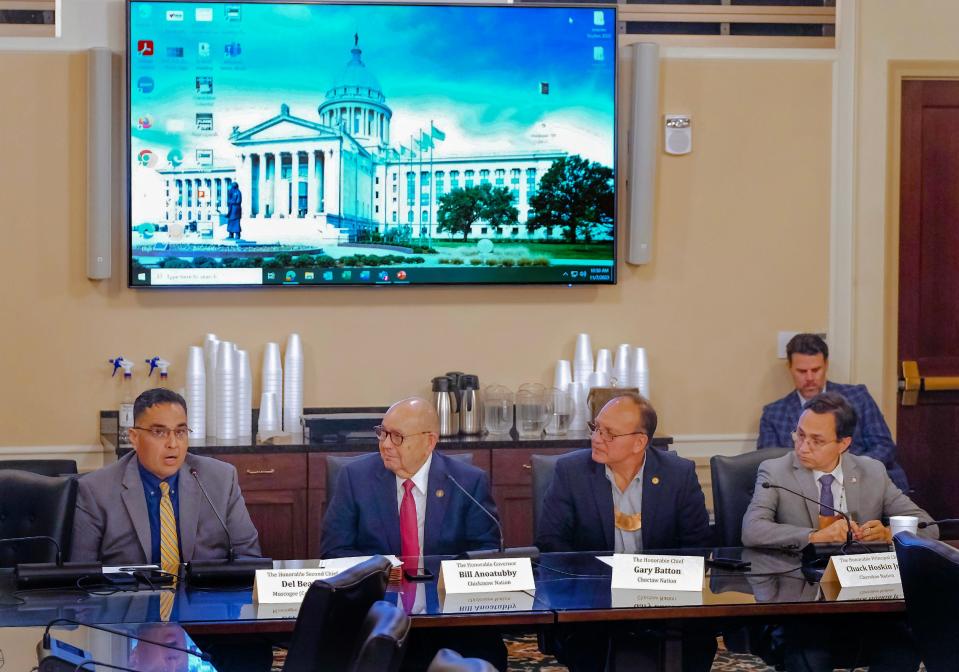
Discussions come amid tensions between Gov. Kevin Stitt, Oklahoma tribes
Another apparent purpose of the hearings went unstated: Figuring out how the Legislature can keep the agreements afloat as Gov. Kevin Stitt plays hardball. In recent years, Stitt has criticized gaming, hunting and fishing and tax compacts as unfair but has not been able to negotiate new deals. Some of the agreements have expired amid the stalemate.
More: Oklahoma lawmakers reject 2 tribal gaming compacts signed by Gov. Stitt
McCall said it was the first time in at least five years that he had set up his own legislative study, which he has the power to do as the speaker of the House. At least 20 lawmakers sat in on the proceedings, although the special committee hosting the hearing has just five members.
Tuesday’s discussion was geared toward tribal nations, while the plans for Wednesday call for talking about state compact laws.
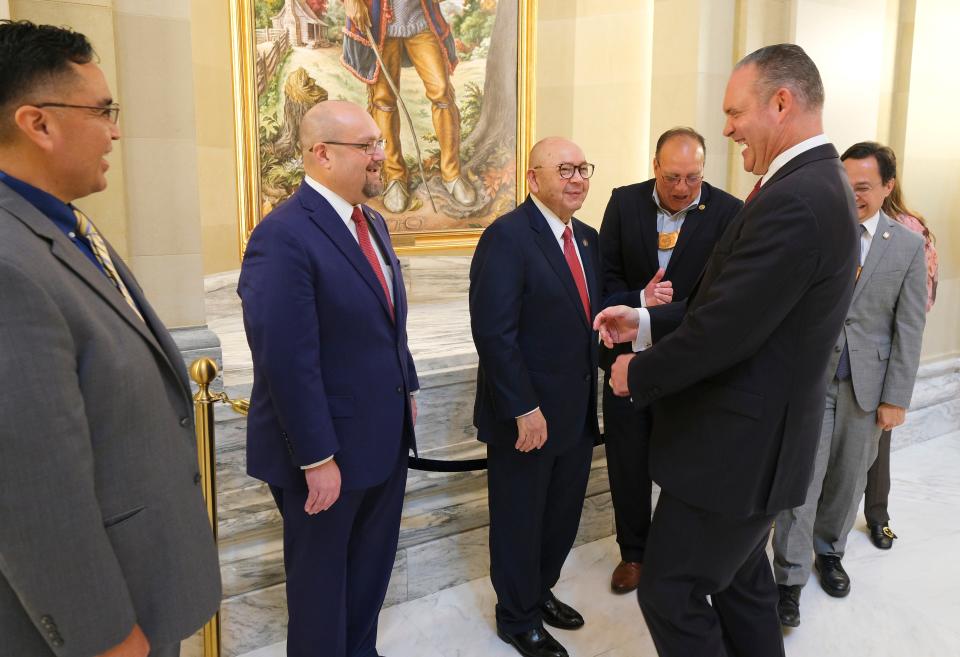
Lawmakers posed their questions to speakers in a group text thread. Rep. Kevin Wallace, who chairs the Special Committee on State-Tribal Relations, then read each question aloud without specifying who had asked it.
One lawmaker asked for an update on negotiations with Stitt to renew tobacco-tax compacts. Under the decades-old agreements, the state and tribal governments split tax money generated from tobacco sales on tribal land. The compacts were all on track to expire by December until McCall and other legislative leaders rallied behind a bill to renew the deals through 2024.
Anoatubby, as well as Muscogee Nation Second Chief Del Beaver and Choctaw Nation Chief Gary Batton, confirmed Stitt had sent a letter outlining his proposed renewal terms.
However, Batton told lawmakers he didn’t respond because the letter read like a demand.
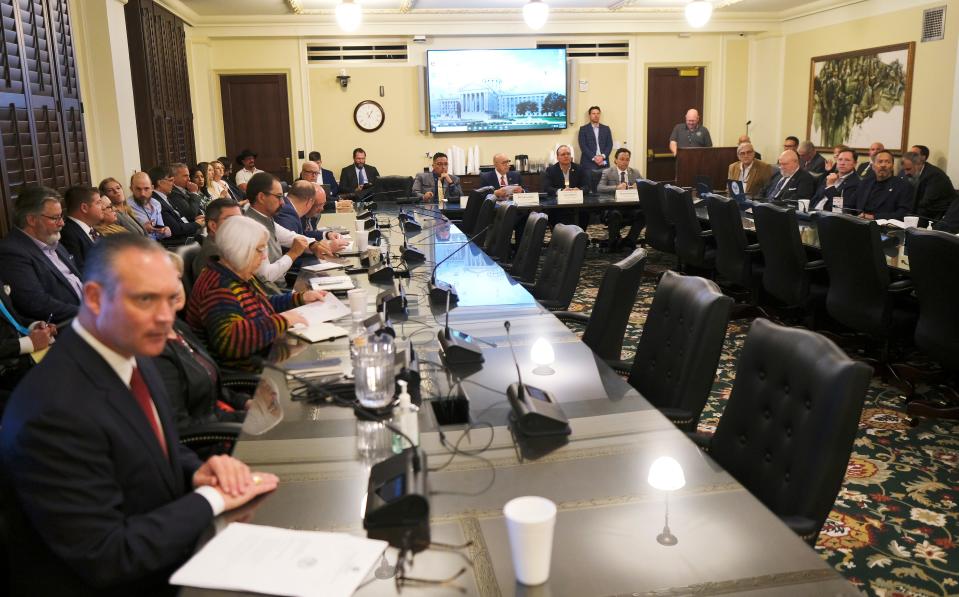
“I don’t know if that’s a form of negotiations or what that is,” said Batton, whose tribe is based in the southeast corner of Oklahoma. “I mean, that would be like me sending you all letters saying this is the compact that we’re giving you.”
A spokesperson for the governor’s office said Batton received the same offer as many other tribal leaders. "The governor’s door is always open to anyone interested in discussing compacts," Abegail Cave said.
Discussions over Oklahoma tribal compacts should not be viewed as a fight, Cherokee Nation Principal Chief Chuck Hoskin Jr. says
Stitt’s new Native American liaison, Wes Nofire, attended the hearings and talked briefly with some tribal leaders during breaks. He declined to comment after the day’s testimony had finished, deferring to Stitt’s office, which did not comment on the hearing itself.
More: Governor announces a plan for sports betting in Oklahoma, but many hurdles lie ahead
The governor and Nofire are both citizens of the Cherokee Nation.
Although the four tribal leaders said they believed relationships between the state and tribes needed to be stronger, they stopped short of calling out Stitt by name. Cherokee Nation Principal Chief Chuck Hoskin Jr. was perhaps the most pointed about what he believed needed to happen to find common ground in compact talks.
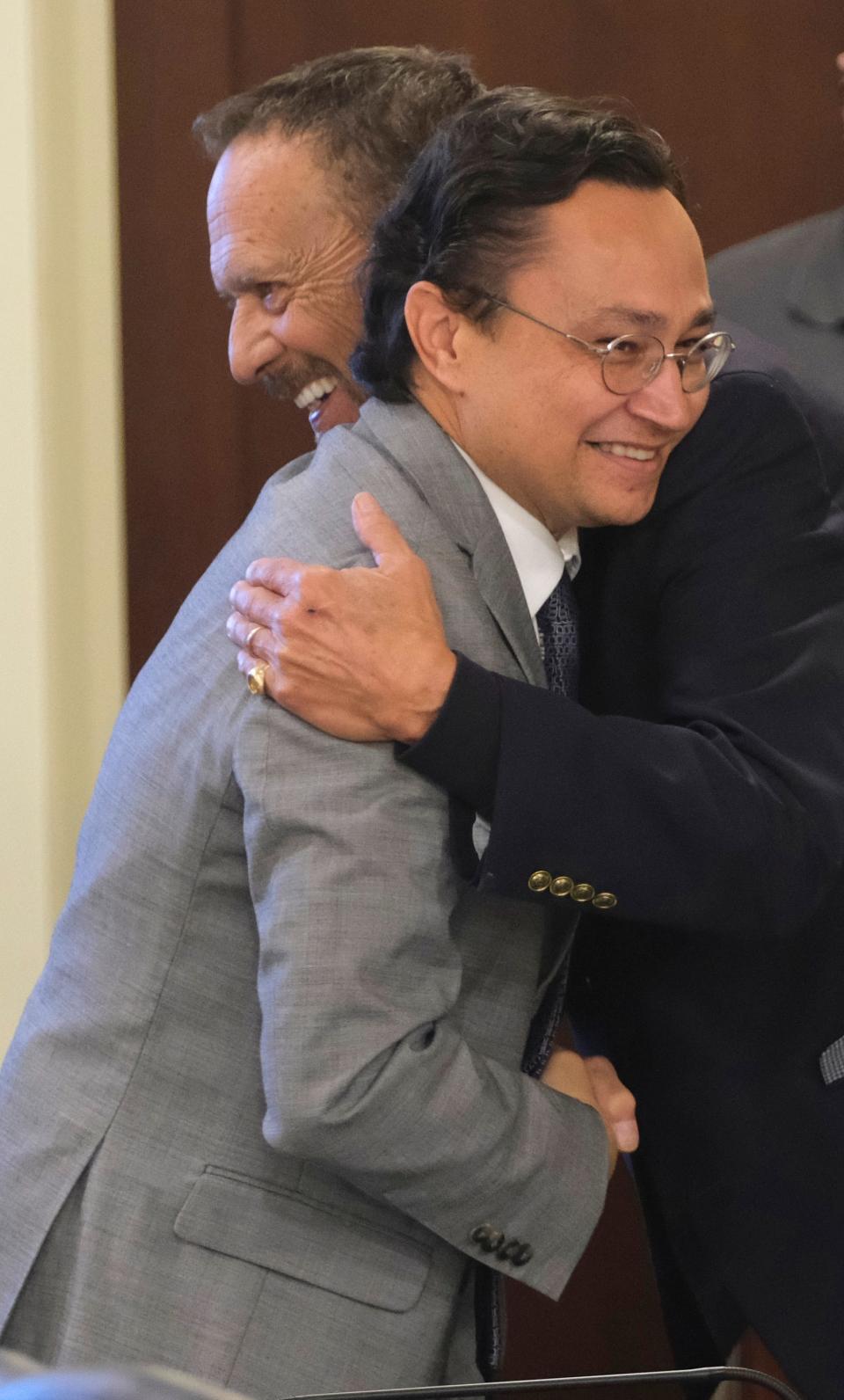
“If those of us in leadership view it as a zero sum game, view it as a fight, view it as an opponent to be defeated, we won’t achieve what’s in the best interests of the state of Oklahoma,” Hoskin said, “and we surely won’t achieve compacts.”
Anoatubby said he has watched compact talks evolve in his decades leading the Chickasaw Nation. He was first elected governor in 1987.
More: More tribes decide to extend tobacco tax agreements with Oklahoma as lawsuit looms
He acknowledged there was no silver bullet to solve the current disputes, but said state and tribal officials could consider working out a central agreement that spells out how they go about negotiations when conflict arises.
Beaver called on tribal leaders and legislators to keep meeting. Compacts have become a “dirty word” when they really shouldn’t be, he said.
“All it is is two sides talking it out and coming to an agreement,” he said. “There’s nothing wrong with that.”
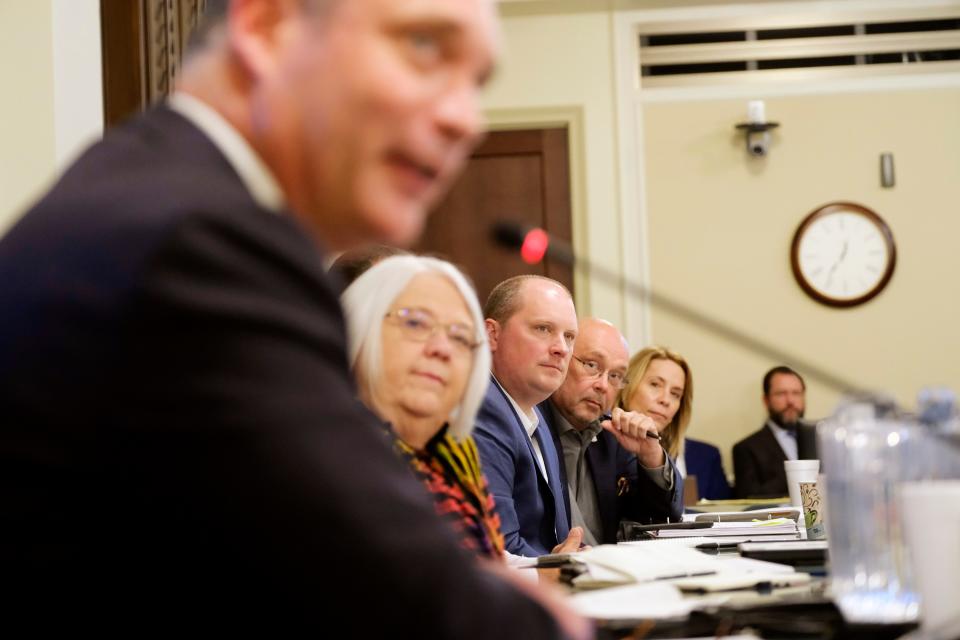
Editor's note: This story has been updated to include comment from Gov. Kevin Stitt's office.
Molly Young covers Indigenous affairs. Reach her at mollyyoung@gannett.com or 405-347-3534.
This article originally appeared on Oklahoman: Oklahoma tribal leaders call for negotiations over tribal compacts

